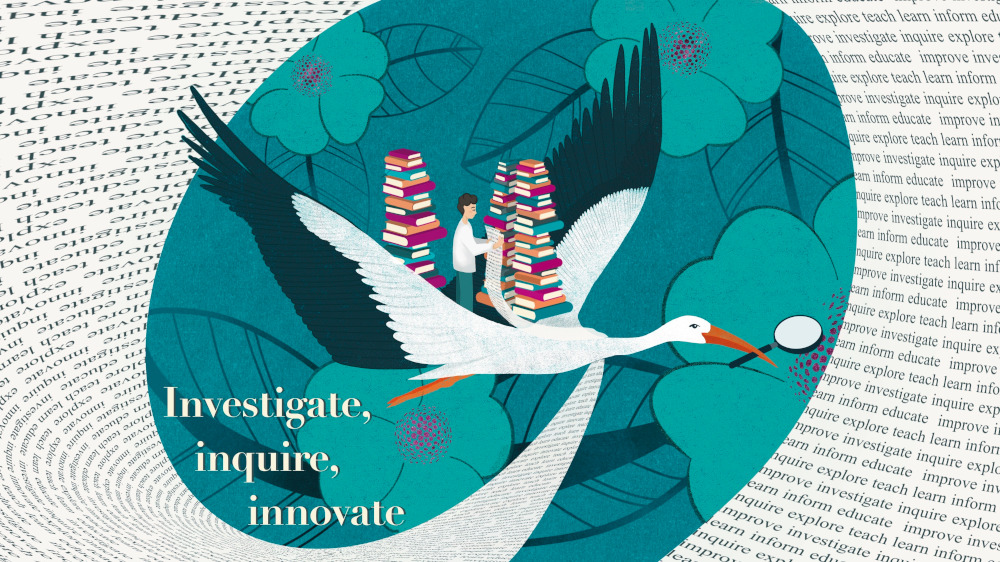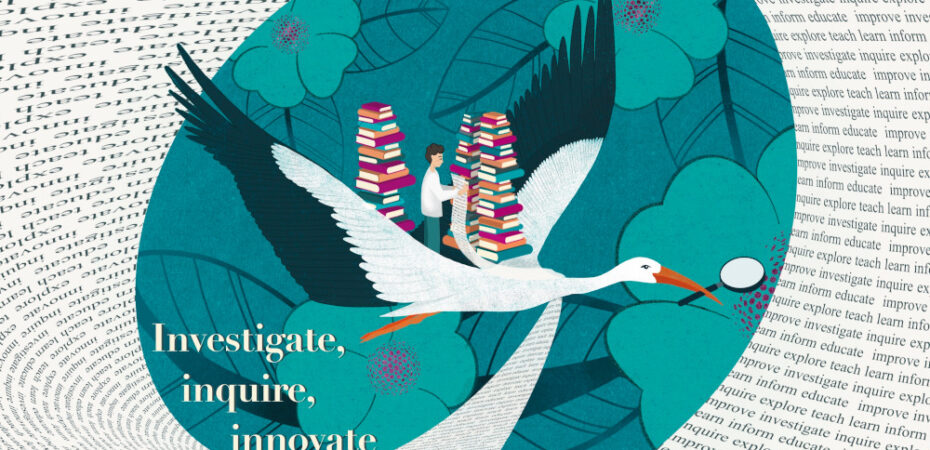
In this post, Jenny introduces a new series within the ‘Learning & Teaching Enhancement’ theme titled “Learning and Teaching Conference 2023↗️“. Jenny Scoles leads the annual Leaning & Teaching Conference and is also the lead editor of Teaching Matters. This introductory post kicks off an amazing series that features posts and podcasts from presenters at the University’s Learning & Teaching Conference 2023↗️ .
Over two days in June, the Institute for Academic Development hosted the sixth annual Learning and Teaching Conference↗️ , ‘Investigate, inquire, innovate: exploring research-informed teaching practice’. The first day was in-person and live-streamed, and the second was fully online.
On June 27th, 349 academic and professional staff, along with students and external guests, experienced the Nucleus’ first, large-scale in-person event. As demonstrated by Prof Iain Gordon, Head of College of Science and Engineering, in the Welcoming Address, when he asked for a show of hands for those who had been to the Kings Buildings before, this was a first trip to the campus for many delegates. Initial feedback suggests that the Nucleus is an inspiring, even “uplifting” venue for gatherings. Despite a major internet outage during the day, over 200 delegates managed to join at points on two live-stream channels, to watch three practical and provocative keynote talks along with the in-person delegates. These included:
- Professor Heather McQueen (Professor of Biology Education, The University of Edinburgh) and students, Sophie Luc and Jessica O’Loughlin: “SoTL: A Place for Everyone”.
- Dr Irma Meijerman (Principal Fellow of the Centre for Academic Teaching and Learning, Utrecht University): “Supporting inquiry into student learning: the hands-on Utrecht Roadmap for SoTL (UR-SoTL)”.
- Professor Gert Biesta (Professor of Educational Theory and Pedagogy, The University of Edinburgh): “How much research does teaching need? A case for thoughtful teaching”.
Day 2 moved fully online, with 179 delegates joining the opening keynote by Barbara Becnel, a PhD Candidate, Social Justice Activist and Author, at The University of Edinburgh – and 92 returning for the closing panel session. Delegates moved between 48 talks, panels, short talks and storytelling sessions throughout the day on Zoom. The beauty of the recorded live-streaming and Zoom sessions means that we have a lasting and accessible resource available for colleagues to access later this summer, once all recordings have been edited and captioned. We will be letting colleagues know as soon as these are live to view.
For now, over the next few months, we are delighted to offer our readers a series that showcases a number of Conference presentations, including blog posts by our keynote speakers↗️ , podcast episodes, reflections on the Conference experience, as well as summaries of presenters’ talks.
These include:
- A compelling argument for the value of plorking, by Dan Castro.
- A reflection on conference organising, by Employ.ed student intern, Ada Bayramoglu.
- A summary and synthesis of discussion points raised during the panel “Developing a field-based methodology for learning and teaching in the contemporary city: A conversation across disciplines”, by Zhi Kang.
- A podcast episode of the incredibly moving and evocative story-telling session by Dr Neil Speirs, “I sat, a solitary student, in a crowded University classroom. An open book and empty cup on the marble table-top”.
- And many more!
Our thanks go again to all our presenters, moderators, chairs, reviewers, and delegates for making the Conference such a productive space for sharing practice, celebrating our learning and teaching, and providing provocation and debate.
Happy reading!
 Jenny Scoles
Jenny Scoles
Dr Jenny Scoles is the lead editor of Teaching Matters. She is an Academic Developer (Learning and Teaching Enhancement), and a Senior Fellow HEA, in the Institute for Academic Development. She provides pedagogical support for University course and programme design, and leads the annual Learning & Teaching Conference. Her interests include student engagement, sharing practice, professional learning, and sociomaterial methodologies.


